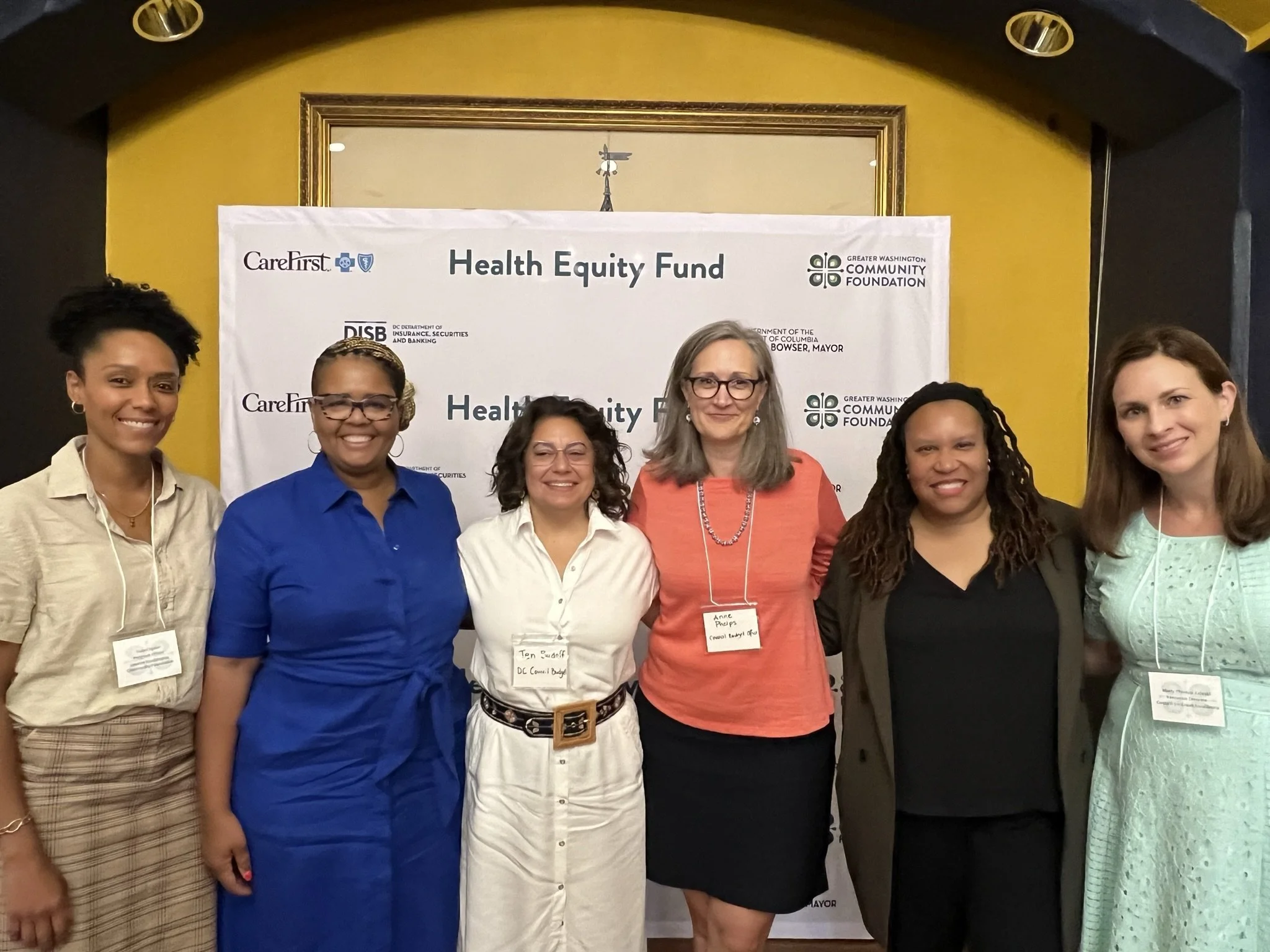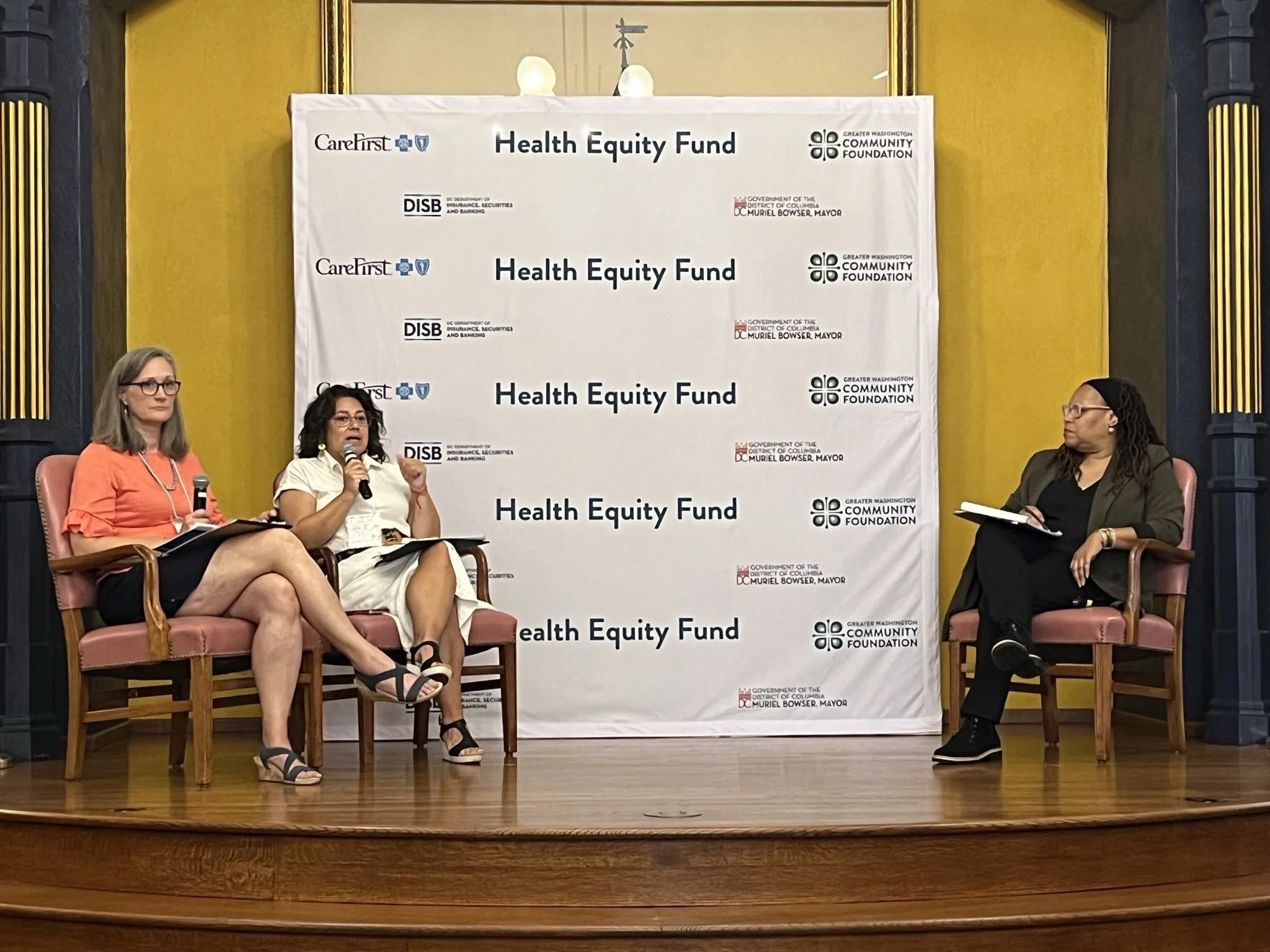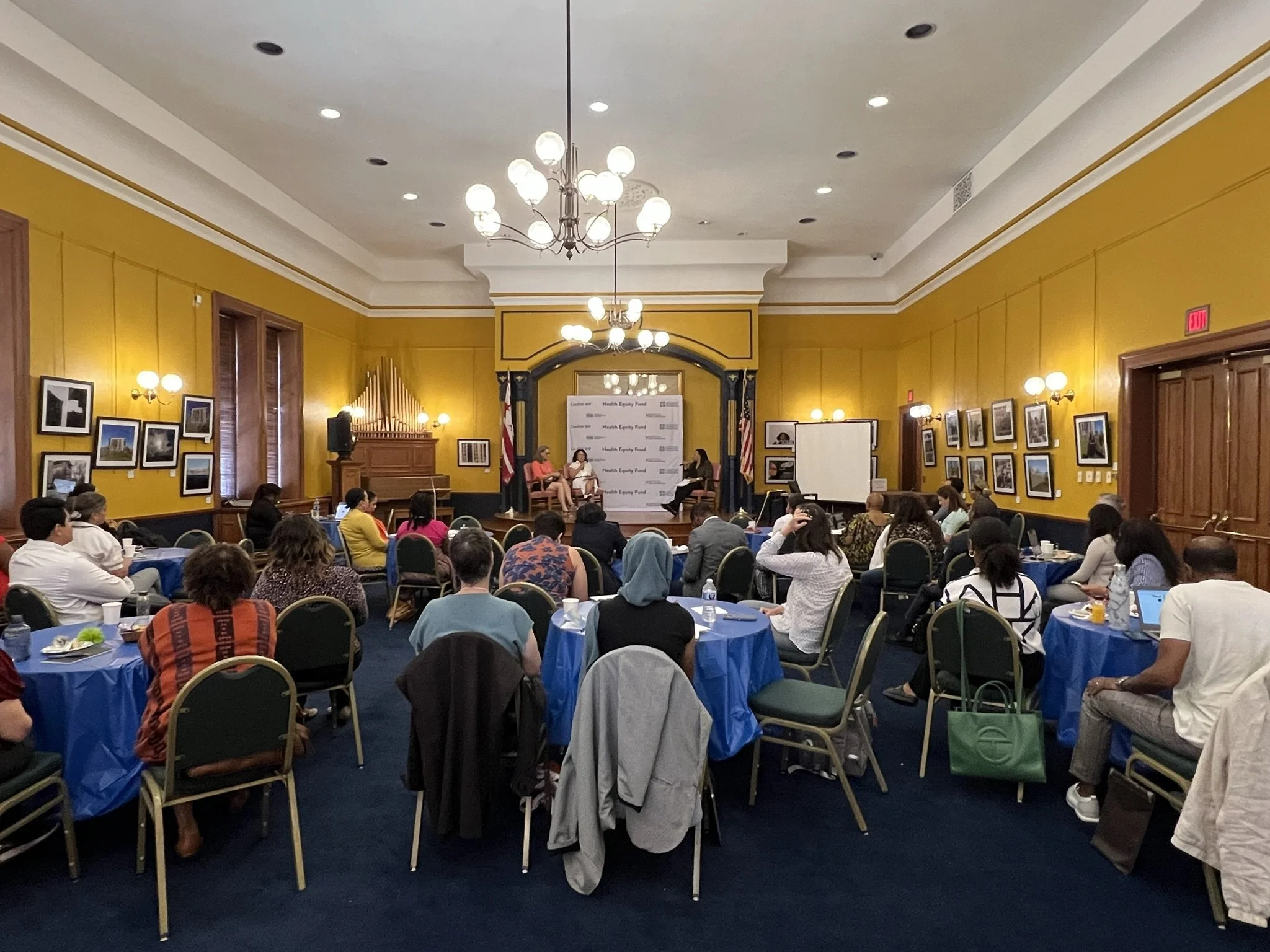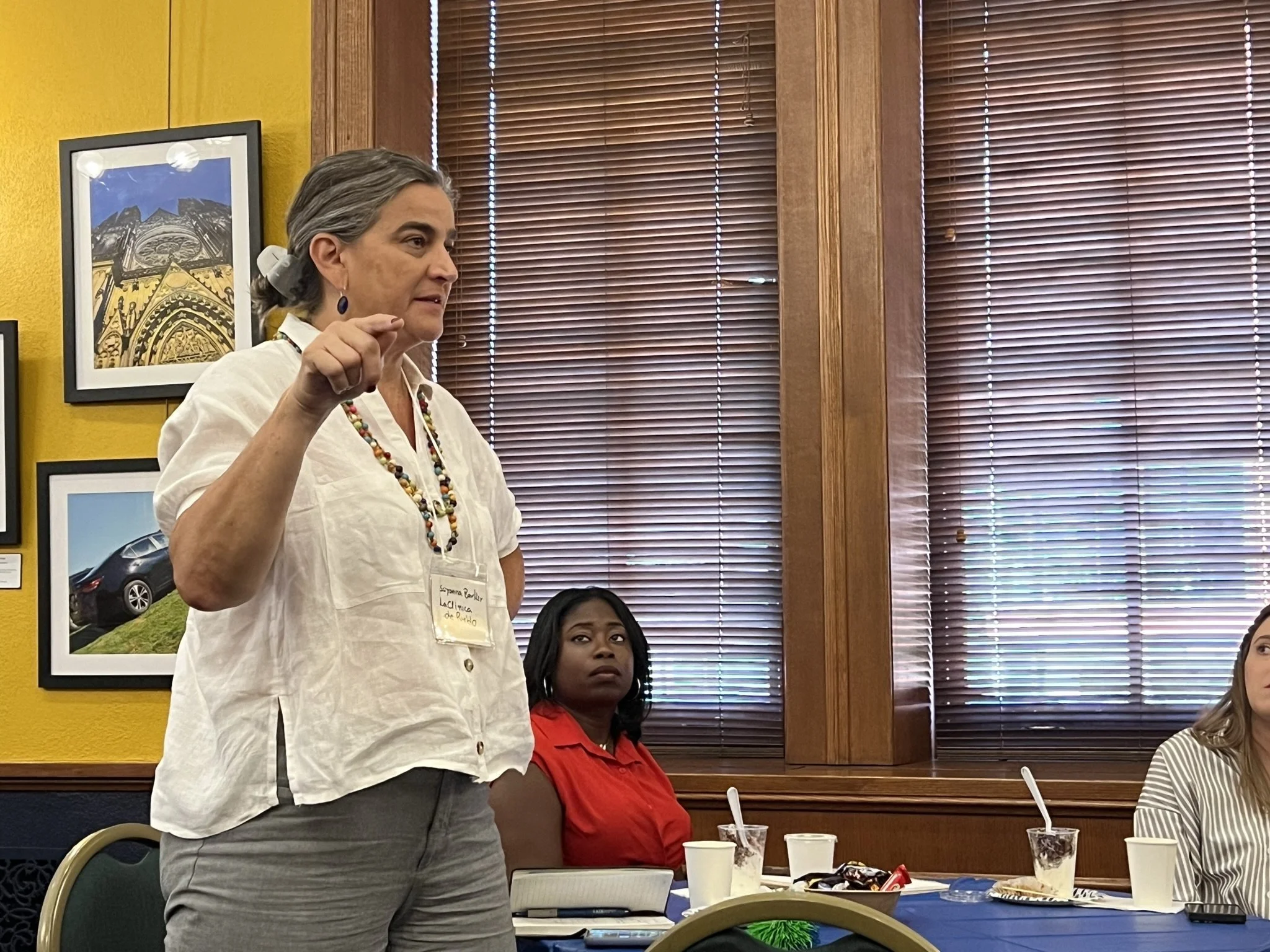Connecting Budget to Advocacy
Earlier this week, the Greater Washington Community Foundation convened DC-based nonprofits for an in-depth conversation about how to leverage the DC Budget process.
Hosted by The Community Foundation’s Health Equity Fund, the event was the second in the Partner Learning Series designed to host convenings around the issues that are most impactful to the work and mission of the Fund.
Following the Fund’s historic $12.5 million investment in health advocacy, policy, and systems change, partners were interested in meeting with a major stakeholder in their advocacy work – the DC Government – to ask questions about how they can more effectively advocate for more equitable outcomes in the budget process.
In recent months, the DC Budget process has garnered national media attention– leaving many grassroots advocates wondering what they can do to strengthen their case for support with local leaders.
“It’s so important to leverage the power that’s in this room,” shared Misty Thomas, the Executive Director of Center for Court Excellence who proposed the event. “Even though we may advocate on different issues, we need to work together to make the budget more effective, more equitable, and more participatory.”
The event featured a panel discussion with DC Budget Director Jennifer Budoff, Budget Counsel and Chief of Staff Anne Phelps, and was moderated by Kim Perry, Executive Director of DC Action. The panel explored a wide range of topics from the timing of the budget process to how to structure a budget request.
“The DC Budget is a document that should represent the priorities of those that live in this city,” DC Budget Director, Jennifer Budoff shared. “That includes all of you, and the incredible advocacy work that you’re doing.”
Budoff and Phelps explained that, in accordance with the DC Home Rule Act, each year (usually around the end of March) the DC Mayor submits a budget proposal to the City Council. Over the next few months, the DC Council works with the DC Budget Office to review and make changes to the budget that reflect the community’s priorities as well as adjustments based on projected revenue streams.
What’s the best thing organizers can do to ensure their issues get funding? “Advocate early and often,” Phelps said.
“The earlier you reach out to the Mayor and DC Council, the more familiar they will be with the issues you’re advocating for and the more likely they are to champion you when it comes time to finalize the budget.”
Phelps and Budoff encouraged partners to begin their outreach in the fall and early winter – long before the public Budget Forums that the Mayor hosts in early February.
“Sitting down and talking to us about the work that you do is truly invaluable,” Budoff said. “We need to know these details – it is so helpful as we navigate the nuances of balancing a budget.”
Budoff and Phelps encouraged partners to find their champions within DC Council who could help advocate for their issues – even if that member doesn’t sit on the right committee.
“It’s important to understand who has an interest in your cause,” Budoff explained. “Even if they chair a different committee, Council Members will sometimes set aside surplus money from their committee and direct it to a different one if it means they can fund the issues they care about.”
“Obviously, you should start with the Committee that oversees your area of advocacy,” Budoff continued. “But it’s never bad to share your priorities with every Council Member you meet. You never know who could make the difference for you.”
On the subject of difference-makers, Phelps explained that when making a funding request, it helps to be as specific as possible – breaking down the costs into line items. This provides valuable context for Council staff during the budget reconciliation process. She also encouraged partners to print off their asks as a one-pager that can be left with Council Members and easily shared with budget staff during the reconciliation process.
Similarly, Budoff said that it also helps if you can list your budget asks in order of importance so Council staff can consider funding the most essential asks first. She explained that in some cases, some initiatives can be earmarked to be funded with ‘contingent revenue’ – meaning the funding is conditional on the outcome of the City’s Quarterly Revenue Estimates.
“Incrementalism is key, when it comes to budgeting,” Budoff added. “It’s about taking things bite by bite.”
Above all, Budoff and Phelps encouraged partners to be active in reaching out and engaging with City officials – especially when it comes to the budget process.
“Oversight, oversight, oversight,” Budoff insisted. “That’s the secret to success. Set up a time to meet with Council staff and help keep us in the loop.”
“Because of the work you do every day, you know what’s working and not working,” Phelps added. “Use that to build relationships with DC Council and their staff. Help inform us so we can do our jobs and get you to your end goals and budget.”
For more information on the DC Council Budget Process, visit www.dccouncilbudget.com.
The Greater Washington Community Foundation’s Health Equity Fund is excited to convene its nonprofit partners around the issues that matter to them. For more information about the Health Equity Fund, visit our website!





